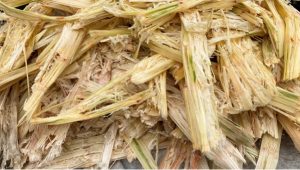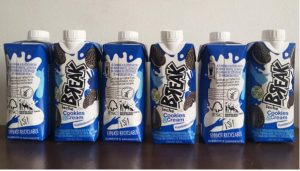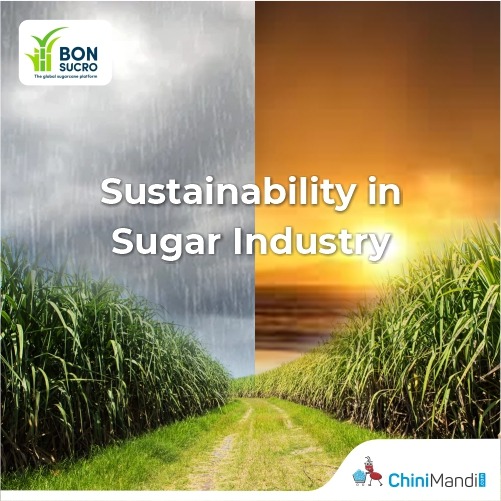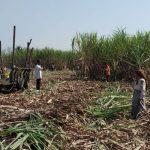Sugar isn’t the only valuable material that sugarcane farmers are growing in their fields. As demand for sustainable packaging increases, interest is turning to sugarcane as an alternative to materials made from fossil fuels. This could offer exciting opportunities for Indian growers and mills that are committed to producing and processing sugarcane sustainably.
Plastic pollution is an urgent problem, globally and in India. More than 400 million tonnes of plastic is produced annually, with an estimated 14 million tonnes ending up in the ocean each year, and these numbers are only increasing. India generates some 3.5 million tonnes of plastic waste every year, damaging the environment and exacerbating air pollution.
But the tide may be turning. Negotiations are under way to develop a legally binding international treaty to curb plastic pollution. India is already a step ahead with its ban on certain single-use plastic items, which came into effect in 2022. In response to regulatory changes and consumer demand, increasing numbers of businesses are turning to alternatives to plastic – particularly for packaging, which makes up more than a third of all plastic produced annually.
The bio-based packaging industry is growing rapidly. The biodegradable packaging market is worth an estimated US$105.26 billion and is expected to reach US$140.66 billion by 2029. Production of bioplastics is projected to more than triple in the next five years, from around 2.18 million tonnes in 2023 to 7.43 million tonnes in 2028. Sugarcane is one of the most promising materials in this booming market, both through the use of bagasse and as a feedstock for bioplastics.
Bagasse – made from the leftover fibres after the sugar has been extracted – can be used directly to make a versatile and fully compostable material. Because it can hold hot, wet and oily contents, bagasse is in particular demand in the food and beverage sector.

Bioplastics made from sugarcane-derived ethanol are emerging as a leading alternative to fossil-fuel-based plastics. For example, Swedish giant Tetra Pak has been using bioplastic made from sugarcane in its food and drink packs since 2019. Tetra Pak uses sugarcane that has been certified as sustainable by Bonsucro, the leading sustainability standard for sugarcane. At the last count, 78 Tetra Pak customers in 35 countries had chosen to use the Bonsucro logo on their products to communicate their sustainability credentials to consumers. Brands using this packaging with the Bonsucro logo can be found in countries such as Mexico (as pictured in the photo), Japan, China, Italy, Brazil, and South Africa.

Other leading companies in this space are also Bonsucro members, such as Corbion – the market leader in bioplastics produced from lactic acid made from sugarcane.
The market for bio-based packaging in India is in its infancy, but the opportunities are great – not least since the government recently amended the Plastic Waste Management Rules to permit bags and other items made from biodegradable and compostable plastics. According to the Packaging Industry Association of India, the packaging sector is the fifth largest in the Indian economy and growing at a dramatic rate, from US$50.5 billion in 2019 to a projected US$204.81 billion by 2025. As the world’s second largest sugarcane producer in the world, India has the potential to become a world leader in sustainable packaging made from bagasse and bioplastics.
At Bonsucro, we believe the transition to bio-based packaging is positive for society and for the environment – but only if renewable biomass material comes from a sustainable source. So we are pleased to see increased interest for certified sustainable sugarcane from the packaging sector.
Companies that want to produce packaging from sustainably sourced sugarcane can obtain the Bonsucro Chain of Custody certification, which ensures the cane is grown in compliance with the Bonsucro Production Standard. Following the Production Standard has been shown to reduce water use, greenhouse gas emissions and other environmental impacts while also benefiting workers and communities.
We are keen to connect with sugarcane growers and mills as well as packaging companies in India that are interested in exploring these opportunities. To find out more, please visit bonsucro.com
Rafael Marques Seixas is Senior Membership Manager at Bonsucro












